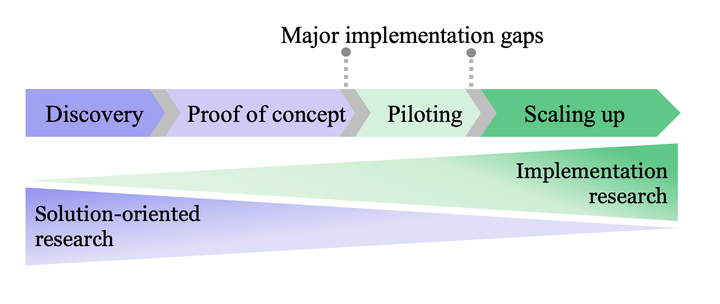Horticulture Institute and Center for Development Research (ZEF) colleagues call for closing the adoption gap with implementation research

It can easily take years for agricultural innovations to find real-world practical application. Implementation research is a collection of scientific inter- and transdisciplinary approaches aimed at identifying barriers to the implementation of research-based innovations and developing solutions for the implementation of research outputs in practice. Accordingly, implementation research attempts to understand which innovations have to be applied where, when, how and for whom. An important aspect of implementation research is the iterative linkage of research and practice that provides researchers, as innovation developers, with information about the applicability of the innovation or useful modifications.
A recent piece by University of Bonn’s Horticulture Institute and Center for Development Research (ZEF) colleagues in Rural 21 ‘The International Journal for Rural Development’, calls for ‘Closing the adoption gap’ by applying more transdisciplinary implementation research approaches in agricultural development. The transitions in the research-for-development (R4D) continuum from ‘proof of concept’ to ‘piloting’ and from ‘piloting’ to ‘scaling up’ represent gaps that can be the focus of implementation research. It can cover the transition of the innovations from smaller protected, monitored and supervised spaces to the larger scale. Thus applied, implementation research can help shape the transition from one phase to the other and ensure widespread implementation of innovations.
Denich, Manfred, and Cory Whitney. “Closing the Adoption Gap.” Rural21, 2021.